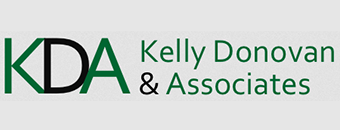Choosing an Executive Resume Writer and LinkedIn Profile Writer
18 Questions to Ask and Things to Find Out Before Deciding
By Kelly Donovan, CPRW, NCOPE, CHJMC
Note: These are the sort of things you should try to find out through someone’s website, LinkedIn profile, and a one-on-one conversation with them; I’m not suggesting that you interrogate them by firing off each of these questions one after another like a drill sergeant.
My answers to these questions are found on a separate page.
1. What type of business are you? What services do you offer other than resumes? Companies offering resume writing and other career services typically fall into the following categories:
- Secretarial or typing services — many of them describe themselves as resume writers, but if you investigate further, it becomes clear that they’re mostly just typing and formatting the document.
- Jack-of-all trades freelance writers — many writers and editors offer resume writing, but if most of their work is other types of writing, they may lack knowledge of hiring, current career trends, and resume writing best practices.
- Resume mills — these large, factory-style operations draw you in with snazzy websites and alarming resume critiques. The quality is often poor, the writers might be inexperienced, and these companies often treat you like a number. The website may emphasize the credentials of their most qualified writers–which might not be representative of whoever will be writing YOUR resume and LinkedIn profile.
- Small resume writing / career coaching firms — this is who you want if you want results and a partner in your job search; look for someone who is well-established, reputable, and demonstrates a commitment to the career industry.
2. Are you certified by a reputable career industry organization? In this industry, 99.9% of truly committed and qualified professionals are certified in resume writing through respected industry organizations. Certification requirements vary, but they all involve passing an exam or program to demonstrate a high level of ability. I only know TWO good resume writers in the entire country who don’t have any certifications–that’s how rare it is. Look for a certified writer, and verify the credential with the organization. However, bear in mind that abilities of certified writers vary widely, so look at this as a minimum standard.
3. Do you provide assistance with LinkedIn strategy and LinkedIn profiles? LinkedIn.com is an important tool for most job seekers today, but to maximize your chances of success with it, you need effective strategies and a profile with advanced search optimization. Many resume writers are not yet up to speed on LinkedIn or don’t know these advanced strategies and techniques. Look for an expert who provides training and profile writing and is certified as a Nationally Certified Online Profile Expert (NCOPE), a certification that provides extensive training in all nuances of LinkedIn for career advancement.
4. Is this a side business? In other words, do you have a day job, or do you run your business full time?
Many low-priced resume writers have day jobs, and they just do resume writing to make some extra money. Chances are, their full-time jobs will take priority over their resume projects. Consequently, they might not be willing or able to devote the time necessary to produce a high-quality product that will get you results.
5. Are you involved with any professional associations for career/resume services?
A serious career industry professional will be an active member of industry groups. The largest and most respected organizations in the industry are the National Resume Writers’ Association (NRWA), the Professional Association of Resume Writers and Career Coaches (PARW/CC), the Career Thought Leaders Consortium (CTL), and Career Directors International (CDI). Be wary of large firms that display an association’s logo; that doesn’t mean all of its writers are members.
6. Do you have at least a bachelor’s degree in a relevant field? Watch out for writers who aren’t formally educated. They often tend to be typists or secretaries who lack writing ability, business knowledge, and hiring experience. Look for someone with a degree in journalism, English, human resources, business, career development, or a field related to your field.
7. Do you provide help with job search strategy and interview preparation? If you want to be successful in your job search, you need an effective job search strategy, networking skills, and interviewing skills. A good firm will offer job search and interview coaching, or supply training products, or provide referrals to reputable career coaches that partner with the firm.
8. How many years of business experience do you have? Do you have hiring experience?
Good resume writing requires insight into the business world. Someone who has less than 5 years of business experience will probably lack the insight needed to produce a world-class resume. Look for someone with years of experience, particularly if it involved being a manager and hiring job applicants.
9. Are you an accomplished and credentialed writer? Writing ability is important. Look for evidence of serious writing credentials, like work published in books or respected media outlets; professional writing awards; paid work experience as a writer; and a bachelor’s degree (or higher) in English or journalism.
10. How long, on average, do you spend on a resume for someone like me? To develop a world-class resume, a writer usually needs to spend several hours–not even counting a LinkedIn profile, cover letter, bio, coaching, training, etc.
11. How much do you charge? Bearing in mind how long it takes to do the work well, estimate an hourly rate. Does it reflect the fees that an accomplished, serious professional would charge–or fees that reflect desperation, a disregard for quality, or a fly-by-night operation? Keep in mind that the hourly rate a business needs to make is at least 3 times the hourly rate that an employee with those skills would be making at a job (due to overhead costs, payroll taxes, and the fact that not all hours worked are billable).
12. Are there any hidden charges I should know about? Many resume services have hidden charges or exorbitant extra fees for things like revisions and file conversions. These fees can add up, and you might end up paying $50-$250+ more than you expected.
13. Do you have expertise in incorporating keywords into resumes, and optimizing resumes for employers’ software?
If you’ve been applying for jobs and not getting interviews, it might be because the employers’ applicant tracking system (ATS) software is screening you out based on keywords. Unless you are exclusively seeking C-level positions, be sure you’re working with a resume writer who is on the cutting edge of optimizing resumes for ATS software.
14. Who will handle my project and how does that work? Many of the bigger Internet-based resume services outsource resume writing to freelancers. Some low-priced firms are set up like factories; one person will interview you, but someone else will write the resume. When hiring these firms, you have no way of knowing in advance who your writer will be or what his or her credentials are.
15. Will the content of my resume be original?
Many low-cost resume firms are “cookie cutter,” relying on software with pre-written resume templates for different professions. For example, if you’re an accountant, the company will simply pull up an accountant resume template and use the same wording for your resume, just plugging in details unique to you that were collected through the questionnaire you filled out.
16. Do you specialize in my industry or profession? This is a “nice to have,” not a “must-have.” A resume writer who specializes in your field will have a better understanding of what questions to ask, the hiring landscape in your field, and your industry’s jargon. However, a top-notch resume writer can often do great work even for professions that he or she doesn’t have that much experience with.
17. Will you be there for me for the long haul?
When dealing with a large resume mill, you probably can’t call or email your writer three months later with a question about your job search. Likewise, a provider who’s only been in business for a few years might be gone when your dream job materializes in a couple years and you need to update your resume. Do you want to have someone who can be a partner in your career for years to come?
18. What do past clients have to say, and what results have they achieved?
Look for a writer who has verifiable testimonials. A testimonial on a company website is not verifiable, because you have no way of knowing whether the company fabricated it. Likewise, be suspicious of reviews on random websites that don’t have a rigorous algorithm for filtering potentially fake reviews.
A good place to review a writer’s testimonials are on his or her LinkedIn profile. That way, you can see who actually wrote each testimonial, and can even click onto the person’s profile to verify that it’s a real person (one of the strongest pieces of evidence that a profile is real is if the person has received LinkedIn recommendations). This will also provide insight into the type of professionals that have benefited from working with the writer.

